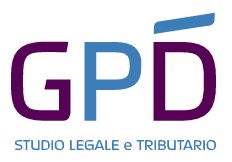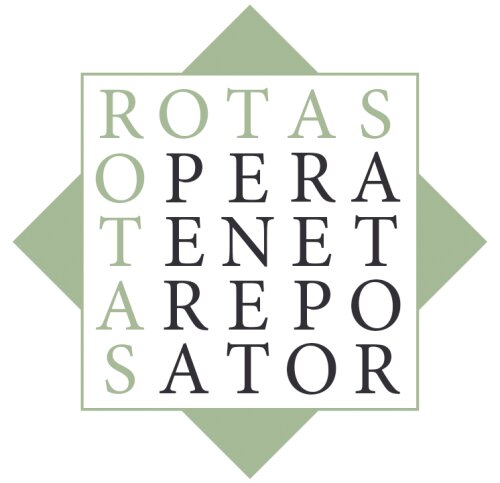Best Agriculture Lawyers in Rome
Share your needs with us, get contacted by law firms.
Free. Takes 2 min.
List of the best lawyers in Rome, Italy
About Agriculture Law in Rome, Italy
Agriculture law in Rome falls under the broader framework of Italian agricultural policy and is influenced by both national regulations and European Union directives. The region of Rome, known for its diverse agricultural offerings such as olives, wine, and various fruits and vegetables, is an important part of Italy's agricultural economy. The law encompasses various issues related to land use, environmental protection, agricultural business, and food safety standards. With Italy being a member of the European Union, farmers and producers in Rome must also adhere to the Common Agricultural Policy (CAP), which aims to support farmers and improve agricultural productivity, ensuring a stable supply of affordable food while also protecting the environment.
Why You May Need a Lawyer
There are multiple situations where agricultural stakeholders in Rome might require legal assistance. These include land transactions and property disputes, setting up and managing agricultural businesses, navigating subsidies and grants under the CAP, complying with national and EU regulations about food safety, organic certification, labor issues involving farmworkers, and disputes over agricultural contracts. Lawyers specialized in agricultural law can help navigate these complex legal waters to ensure compliance, resolve disputes, and aid in the sustainable management and planning of agricultural enterprises.
Local Laws Overview
The main aspects of local laws relevant to agriculture in Rome revolve around land use regulations, environmental safeguards, and support schemes for agriculture. The Italian legislative framework includes laws that regulate the quality of agricultural products, market competition, protection of traditional practices, and property rights. Environmental laws at the local level are also crucial as they address the proper use of pesticides, water management, and the conservation of rural land. Moreover, specific regulations might be in place in Rome for the designation of protected designation of origin (PDO) and protected geographical indication (PGI) for certain products, which is essential for producers to understand.
Frequently Asked Questions
What is the Common Agricultural Policy and how does it affect farming in Rome?
The Common Agricultural Policy is a set of laws and reforms put forth by the European Union to provide a sustainable future for farmers. Farmers in Rome must follow CAP guidelines to receive subsidies and ensure their farming techniques meet EU standards.
How does one obtain an agricultural land lease in Rome?
To obtain an agricultural land lease, one must negotiate terms with the land owner and draw up a contract as per Italian property law. It is advisable to seek legal counsel to ensure all regional and national regulations are met.
Are there any restrictions on what can be farmed in Rome?
Yes, certain restrictions may exist based on environmental, health, and safety standards. It is important to consult local regulations and potentially a lawyer to understand these restrictions.
What are the legal requirements for agricultural product labeling in Italy?
Agricultural product labeling in Italy must adhere to EU standards and national regulations, including accurate information on the origin, content, and production method of the product.
Can a lawyer assist with obtaining organic certification for my farm?
Yes, a lawyer knowledgeable in agricultural law can help navigate the legal requirements for obtaining organic certification for your farm in Rome.
How are water rights handled in Rome's agricultural law?
Water rights are regulated by local and national laws and must be used within the scope of these regulations. It is important to understand your rights and restrictions, which a lawyer can help clarify.
What should I do if I encounter a dispute with my agricultural contract?
If you're involved in a dispute with an agricultural contract, it is advisable to seek legal assistance. An experienced lawyer can offer advice on your rights and the best course of action.
How can I ensure my farming operation is environmentally compliant?
To ensure your farming operation is environmentally compliant, it is important to stay informed about local and EU environmental protections and consider consulting with a lawyer who specializes in environmental and agricultural law.
What support is available for young farmers in Rome?
Young farmers in Rome may be eligible for support under specific EU and national initiatives aimed at encouraging the next generation of agricultural professionals. Legal advice can be beneficial to access these supports correctly.
Where can I find the latest regulations on food safety for my agribusiness?
The latest food safety regulations can typically be found through official governmental websites, or by consulting a lawyer who practices in the field of agricultural law and remains up-to-date on current legislation.
Additional Resources
Individuals looking for legal advice in agriculture can refer to resources such as the Italian Ministry of Agricultural, Food, and Forestry Policies (MIPAAF), the EU's Common Agricultural Policy (CAP) information services, and local agricultural cooperatives. A lawyer specialized in agricultural law can provide more personalized guidance.
Next Steps
If you need legal assistance in agriculture, begin by identifying your legal issue and consult with a lawyer specialized in agricultural law. Ensure that the lawyer has knowledge of both local regulations and any relevant EU directives. For detailed and up-to-date legal advice, personal consultation with a legal professional is always recommended.
Lawzana helps you find the best lawyers and law firms in Rome through a curated and pre-screened list of qualified legal professionals. Our platform offers rankings and detailed profiles of attorneys and law firms, allowing you to compare based on practice areas, including Agriculture, experience, and client feedback.
Each profile includes a description of the firm's areas of practice, client reviews, team members and partners, year of establishment, spoken languages, office locations, contact information, social media presence, and any published articles or resources. Most firms on our platform speak English and are experienced in both local and international legal matters.
Get a quote from top-rated law firms in Rome, Italy — quickly, securely, and without unnecessary hassle.
Disclaimer:
The information provided on this page is for general informational purposes only and does not constitute legal advice. While we strive to ensure the accuracy and relevance of the content, legal information may change over time, and interpretations of the law can vary. You should always consult with a qualified legal professional for advice specific to your situation.
We disclaim all liability for actions taken or not taken based on the content of this page. If you believe any information is incorrect or outdated, please contact us, and we will review and update it where appropriate.














